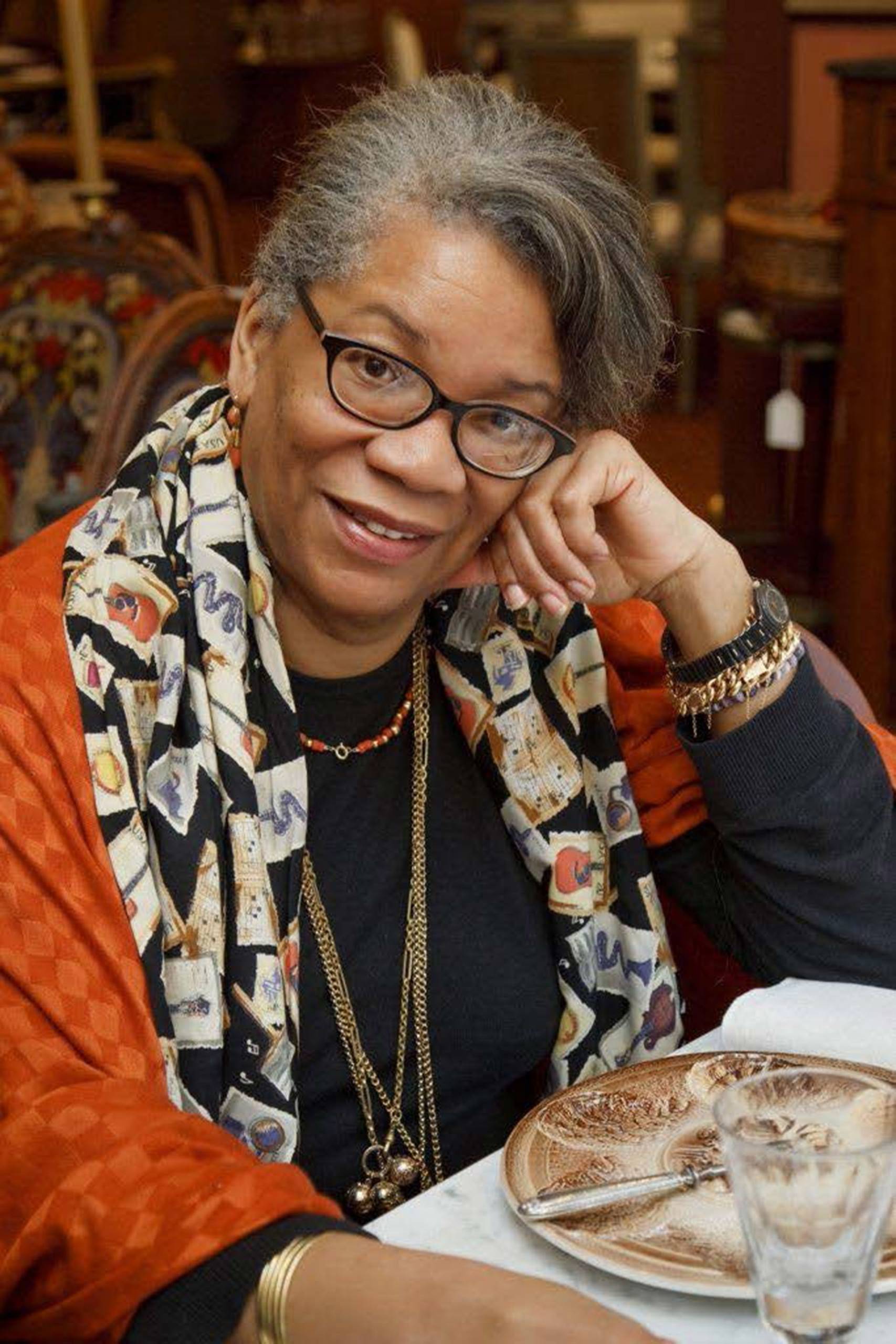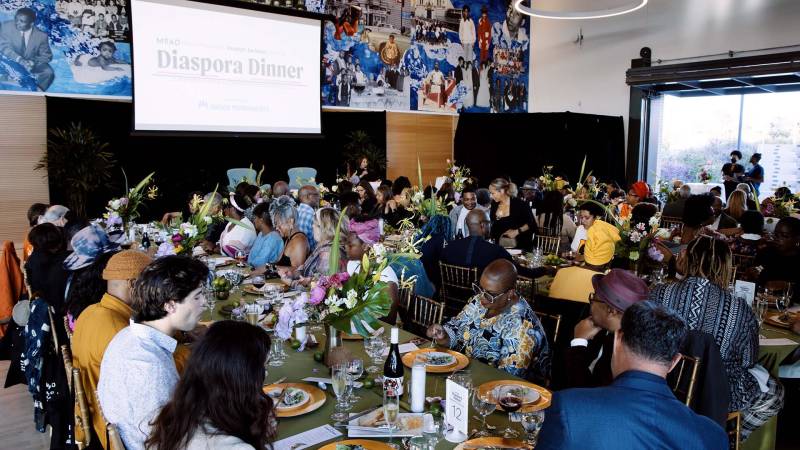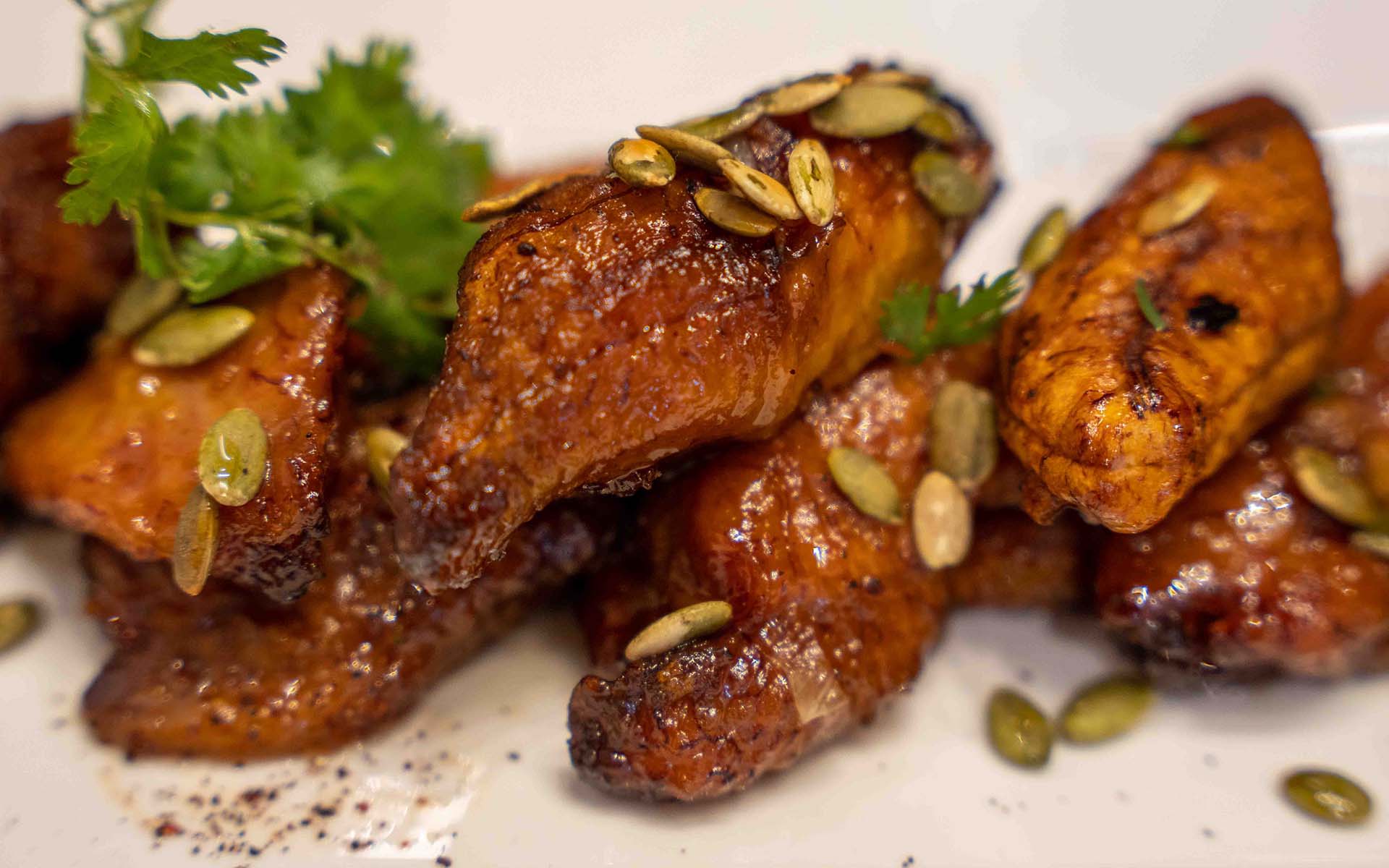Long before Netflix released High on the Hog, its award-winning food docu-series based on Dr. Jessica B. Harris’ book of the same name, Harris herself was already a living legend. Food historian, author of a dozen classic cookbooks and unofficial poet laureate of yams, okra and black-eyed peas, Harris literally wrote the book on how diasporic African foodways shaped America. When the Smithsonian’s National Museum of African American History and Culture was planning its new cafeteria a few years back, Harris was the one the museum tapped to help conceptualize the menu.

And so, when San Francisco’s Museum of the African Diaspora had to pick a featured speaker for this year’s splashy “Diaspora Dinner,” the museum’s signature fundraising event, inviting Harris was a no-brainer.
On Saturday, May 4, Harris will take the stage at MoAD for a conversation about the history of diasporic African food, moderated by chef Adrian Lipscombe. The talk will be the highlight of a blowout dinner featuring dishes from Harris’s cookbooks — all cooked under the supervision of MoAD chef-in-residence Jocelyn Jackson, who calls Harris “an incredible icon” to the Black community.
According to Harris, one of the main reasons she decided to write High on the Hog in the first place was because in her cookbooks, “the headnotes for the recipes kept getting longer and longer, which indicated that there was more to be said.”
She has seen a late-career revival after producers Fabienne Toback and Karis Jagger optioned the High on the Hog for Netflix, introducing her work to a new generation. Like the book that inspired it, the show (which recently released a second season) takes viewers on a journey from the open-air markets of Benin, in West Africa, to the rice fields of South Carolina, the barbecue pits of Texas and beyond. It’s a culinary history that’s intertwined with the suffering that enslaved Africans faced — but also their resilience and ingenuity in maintaining their connection to Africa.



